NVIDIA RTX A4500 v. RTX A6000
As we were finishing this review, Patrick our Editor-in-Chief, realized we had both the RTX A4500 and the RTX A6000 in the studio. We are going to discuss specs later, but here are the two cards side-by-side. Something that is immediately obvious is that NVIDIA spent more time on the aesthetics of the RTX A6000.
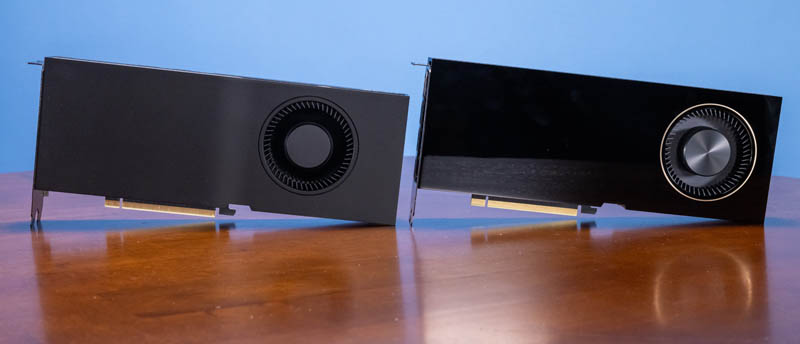
The RTX A6000, for example, came with a glossy front with a gold ring around the larger fan. It also came with things like covers for the top connectors.
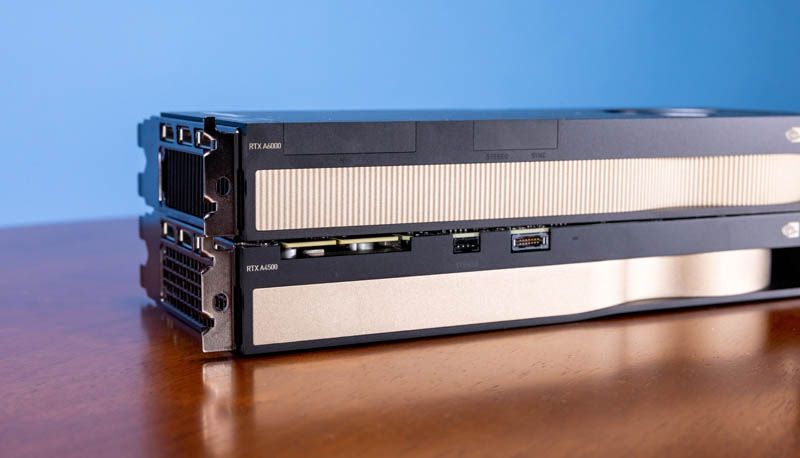
One can see that the cooler and heatsink on the RTX A6000 is significantly more robust. It needs to be since the RTX A6000 is a 300W TDP card while the RTX A4500 is a 200W TDP card.
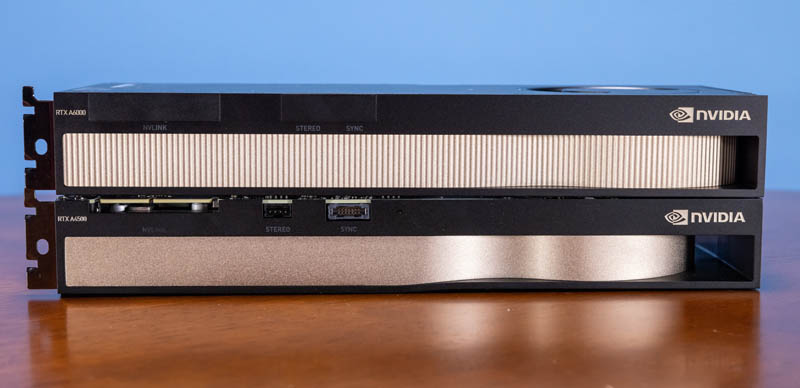
On backplates, the A6000 has this along with a fan design that has an opening on both sides. This type of backplate is something we wish the A4500 had.
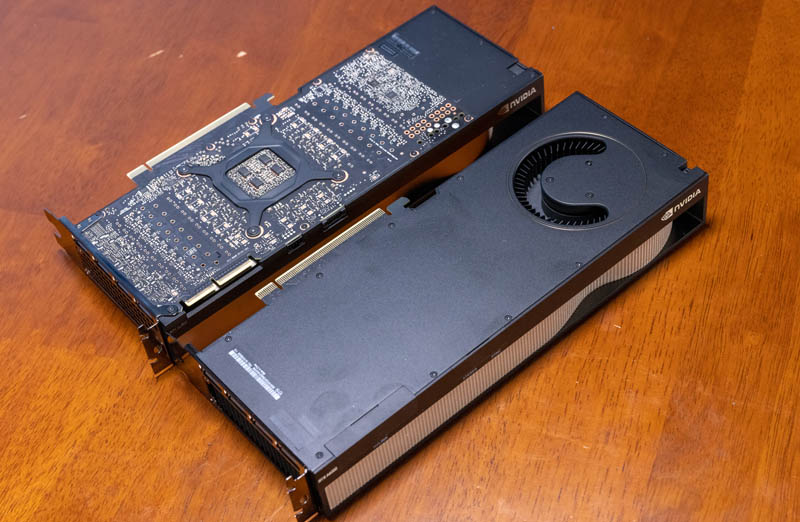
Often the GPUs are pictured by themselves, so we figured we would sneak this side-by-side view in so folks can compare them more easily.
NVIDIA RTX A4500 Key Specs
Here are the key specs of the NVIDIA RTX A4500:
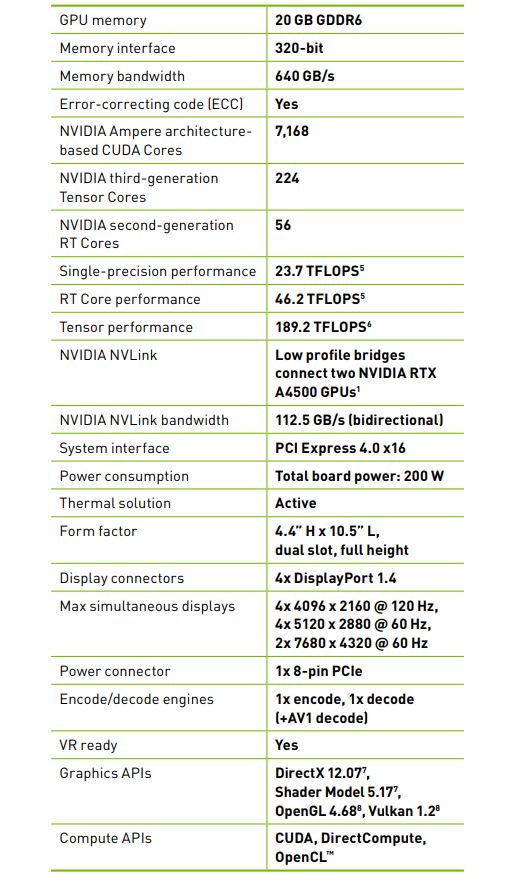
In terms of specs compared to other alternatives in the family, here are the CUDA cores, memory, and TDP of the cards.
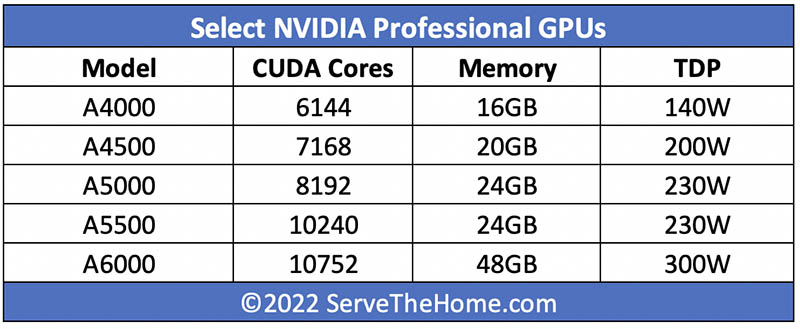
Spec-wise, on the consumer side, a 7168 CUDA core GPU would be between a GeForce RTX 3070 Ti (6144 CUDA cores) and an RTX 3080 (8960 / 8704 CUDA cores.) At the same time, there are features such as the 20GB of ECC memory that bring this to a different level of GPU compute to memory.
The NVIDIA RTX A4500 allows the use of Quadro Sync II and NVIDIA Mosaic. That along with the 20GB per card makes this NVIDIA’s mid-range multi-display solution with the step down as dual T1000 8GB cards and the step up being dual A6000’s. While all support up to 8 GPUs, having those features is a big differentiator.
Power Consumption
A quick note on power consumption. We saw this unit hit the 200W power limit in nvidia-smi regularly under load. For many GPU compute workloads where the GPU was not being fully utilized, the power consumption was closer to the 140-180W range.
This is one area where professional GPUs tend to be more reliable. Many consumer GPUs greatly exceed rated specs. Having GPUs with better-defined power limits probably constrains performance, but it also is more consistent for sizing power supplies in a system. These are more like NVIDIA’s data center GPUs in that regard.

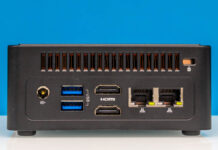
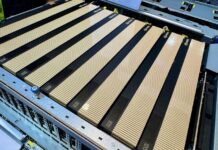

This is the configuration 3080 Ti should have been.
Thank God. Ai performance
So what’s the market for the RTX A5000? Realistically, and more importantly when it comes to price to performance, the A5500 makes more sense it’s got loads more CUDA cores and cost less than half an A6000 with 24GB of VRAM.
Any reason Specviewperf benchmarks weren’t done like in previous RTX reviews?
Thanks STH for ML benches